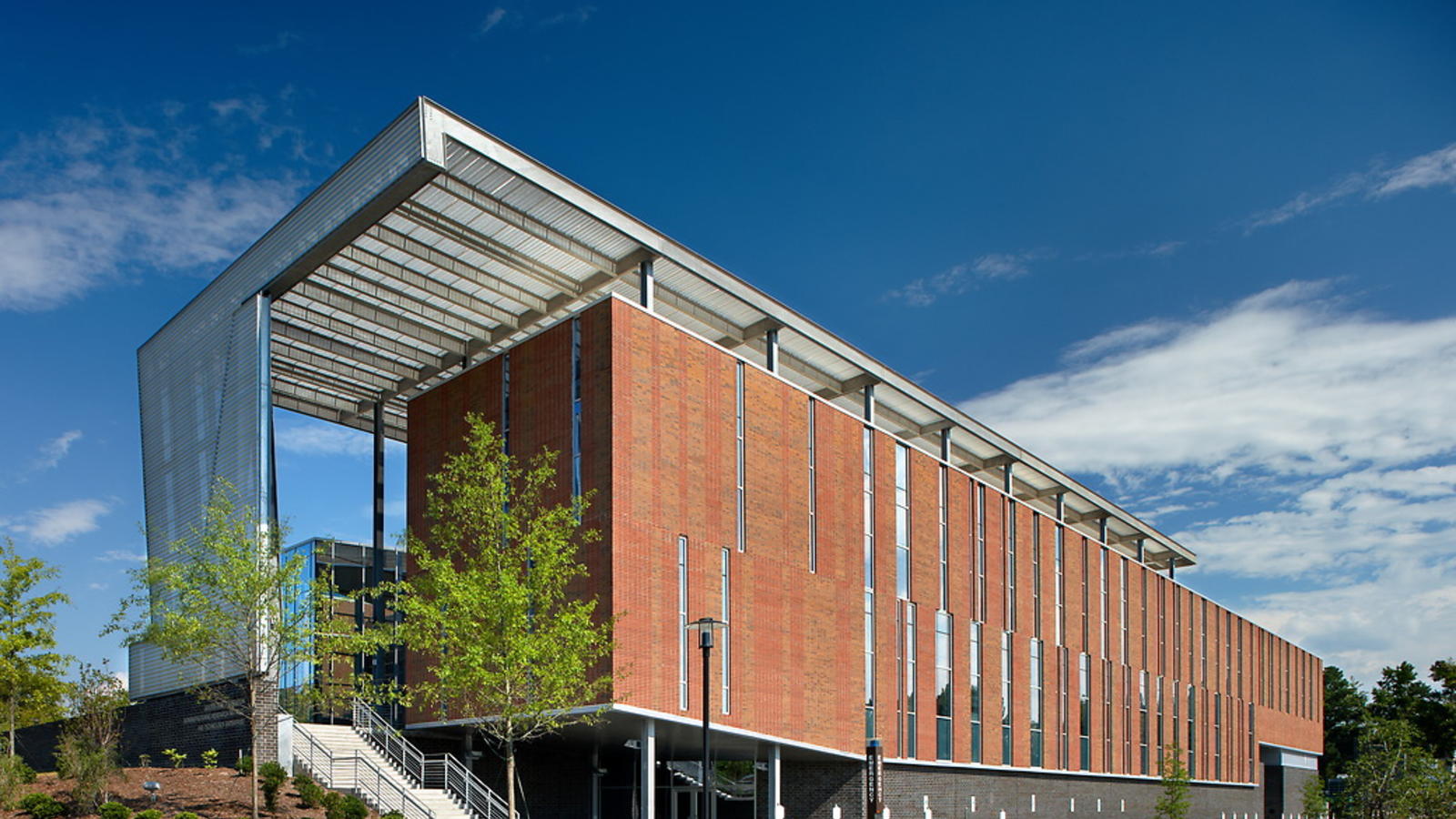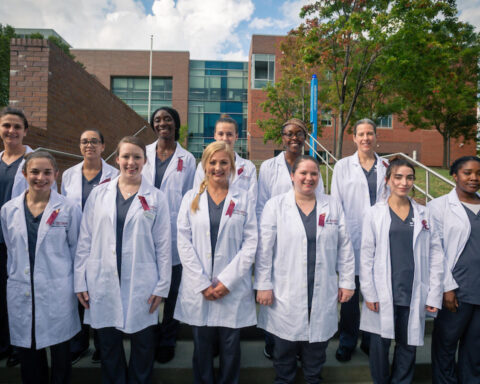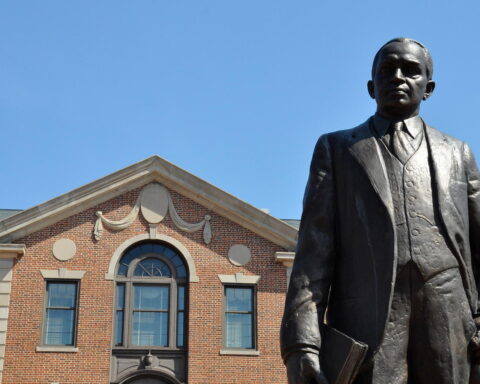By Quiana Shepard
North Carolina Central University’s (NCCU) Biomanufacturing Research Institute and Technology Enterprise (BRITE) has been awarded $6.2 million from the U.S. Economic Development Administration’s (EDA) Build Back Better Regional Challenge. The award is the result of the efforts of a statewide coalition of public and private partner organizations and institutions, led by the North Carolina Biotechnology Center (NCBiotech).
The NCBiotech-led consortium, which includes NCCU, is one of only 21 projects chosen from 60 applicants. The phase two award will further strengthen North Carolina’s life sciences manufacturing cluster by expanding, connecting, and promoting training and career opportunities to underserved and distressed communities, including historically excluded populations.
Launched in 2008, NCCU’s BRITE focuses on research and training efforts that contribute to the workforce development for the biomanufacturing and pharmaceutical industries in North Carolina. As part of the award, the university’s research enterprise will lead the establishment of six training hubs at the state’s historically Black colleges and universities – Elizabeth City State University, Fayetteville State University, Livingstone College, Saint Augustine University, Winston-Salem State University – and the University of North Carolina at Pembroke, North Carolina’s sole historically American Indian university. The training hubs will deliver hands-on, short courses on manufacturing biopharmaceuticals to an inclusive and diverse population.
“The idea for this project came from our National Institute for Innovation in Manufacturing Biopharmaceuticals (NIIMBL) testbed grant to establish a short course in bioprocessing,” said Hernán Navarro, Ph.D., director of BRITE. “This would allow anyone, regardless of educational background, to receive training in upstream and downstream bioprocessing, and permit them to participate in the economic growth associated with North Carolina’s growing biomanufacturing industry. Moreover, the project goals are in keeping with our workforce development mission for the life sciences industry in North Carolina.”
“The establishment of this research partnership with fellow minority-serving institutions across the state is key in expanding opportunities for student scholars to develop leadership skills through innovative research,” said Johnson O. Akinleye, Ph.D., NCCU chancellor. “North Carolina Central University is pleased to receive this funding and continue to deliver on our Eagle Promise, which ensures that students graduate from the university career-ready.”
NCCU generated $27 million in sponsored research funding during the 2021-2022 academic year. The $6.2 million award from the EDA is a giant step in the university eclipsing last year’s total.
Other consortium projects include expanding the number of trained life sciences manufacturing workers by enrolling citizens from across the state in BioWork and other life sciences training programs, which will be led by the North Carolina Community College System. NCBiotech will also launch ambassador and apprenticeship programs to increase awareness of and access to life sciences manufacturing training and job opportunities.
“This is a huge win for North Carolina’s citizens, businesses, and economy as it will take our state’s life sciences manufacturing capability to the next level,” said Bill Bullock, NCBiotech’s senior vice president for economic development and statewide operations. “This award will enable us to attract and develop a more diverse workforce to manufacture vaccines, gene and cell therapies, antibodies, and other medicines. Enabling greater equity for our underserved populations as well as those in distressed and rural communities is essential. We are grateful to the EDA, our state leaders, including the Governor and the NC General Assembly, the NC Biosciences Organization, and the many community and industry partners that contributed to this transformative project.”
Industry partners that contributed matching funds to these projects include Novo Nordisk, Biogen, Pfizer and others. Additional partners, including Thermo Fisher Scientific, other companies, universities, and organizations from across North Carolina, also provided critical support for the Coalition projects. Amgen is also another significant industry financial supporter.
Under the American Rescue Plan, the EDA was allocated $3 billion in supplemental economic development funding. The Build Back Better Regional Challenge is one of many programs developed by the EDA, a bureau within the U.S. Department of Commerce, aimed at building strong regional economies and supporting community-led economic development nationwide. The regional challenge program aims to accelerate economic recovery, especially from negative impacts from the pandemic, and at building local economies that will be resilient to future economic shocks. It is the largest economic development initiative from the Department of Commerce in decades.





